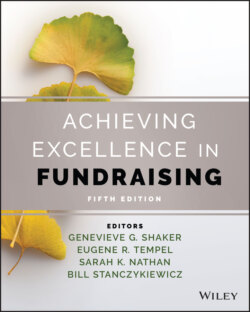Читать книгу Achieving Excellence in Fundraising - Группа авторов - Страница 110
Longevity
ОглавлениеA meta‐analysis that included 14 studies with over 74,000 older adults found that volunteering was associated with a 47 percent decreased risk of dying overall, and a smaller (24 percent) decreased risk when adjusting for background factors like age, sex, socioeconomic status, physical health, health behaviors, and social connections. Since then, a high‐quality national study of older adults found that volunteers were 44 percent less likely to die than nonvolunteers.
To put this in perspective, eating six or more fruit and vegetables per day lowers mortality risk by 26 percent, and regular exercise lowers mortality risk by between 23 and 33 percent. So, volunteering lowers the risk of early death at least as much as traditional health behaviors. When comparing types of giving, we have found that people who give time (volunteering, giving support, or caregiving), but not money, are less likely to die. Although lots of research finds that charitable giving feels good, this doesn't necessarily translate to a longer life.
